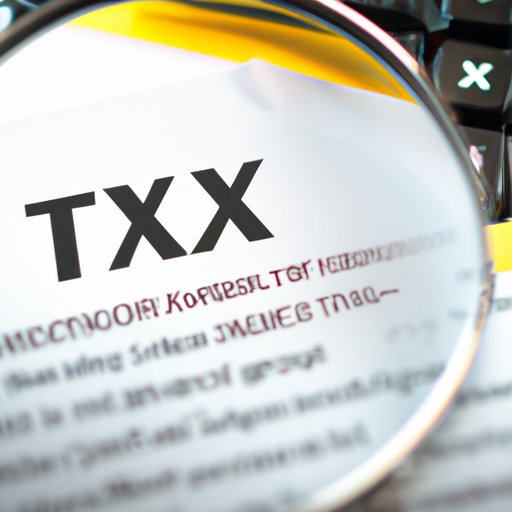Introduction
Cryptocurrency mining is the process of verifying and adding transactions to a blockchain network in exchange for rewards in the form of cryptocurrency. As the popularity of cryptocurrencies continues to grow, more and more individuals are investing their time and resources into mining activities. However, with this increased investment comes an increased responsibility to understand and comply with the relevant tax laws.
In this guide, we’ll provide an overview of crypto mining taxes, including tips on calculating taxable income, common deductions available to miners, and best practices for reporting crypto mining taxes. Understanding the applicable tax regulations can help ensure that you’re accurately reporting your crypto mining income and taking advantage of any applicable deductions.
Calculating Crypto Mining Taxes
The first step in determining your crypto mining taxes is to calculate your gross income from mining activities. This includes all income received from mining activities, including rewards, donations, and other payments. Once you’ve calculated your gross income, you can then subtract any deductible expenses associated with your mining activities.
Deductible expenses include costs such as the cost of equipment, electricity and utility costs, and depreciation of equipment. Keep in mind that some expenses may not be fully deductible – for example, depreciation is generally only allowed up to a certain amount per year. Once you’ve subtracted your deductible expenses from your gross income, you’ll be left with your net income, which is the amount that is subject to taxation.
Common Deductions Available to Miners
When calculating your crypto mining taxes, there are several common deductions available to miners. The most common deduction is the cost of equipment. This includes the purchase price of any hardware or software used in mining activities, as well as any fees paid for repairs and maintenance. Additionally, miners may also be eligible to deduct electricity and utility costs associated with their mining activities.
Another common deduction available to miners is depreciation. Depreciation allows miners to spread the cost of their equipment over a period of years, rather than deducting the entire cost in the year it was purchased. Keep in mind that depreciation is generally limited to a certain amount per year, so it’s important to understand the rules and regulations surrounding this deduction before claiming it.

Best Practices for Reporting Crypto Mining Taxes
Once you’ve calculated your crypto mining taxes, it’s important to properly report your income and deductions. To ensure accuracy and compliance, there are several best practices you should follow when reporting your crypto mining taxes. First, it’s important to keep accurate records of your income and expenses related to mining activities. This includes keeping track of receipts, invoices, and other documents that can be used to substantiate your deductions.
It’s also important to be aware of your filing requirements. Depending on the amount of income you earn from mining activities, you may be required to file additional forms with your tax return. Lastly, if you’re unsure of how to accurately calculate and report your crypto mining taxes, it’s wise to consult with a professional tax preparer. They can help ensure that you’re properly reporting your income and taking advantage of any applicable deductions.
Resources for Further Guidance
If you’re looking for more information on reporting crypto mining taxes, there are several resources available to help. The Internal Revenue Service (IRS) regularly publishes publications and guidance documents related to taxes, including specific guidance on reporting cryptocurrency income. Additionally, there are many professional tax preparers who specialize in crypto mining taxes and can provide personalized advice and guidance.
Finally, there are also online tax calculators available that can help you estimate your crypto mining taxes. These calculators can be a useful tool for estimating your taxable income, as well as calculating applicable deductions. However, it’s important to remember that these calculators may not take into account all of the applicable tax laws, so it’s best to consult with a professional tax preparer for more detailed advice.
Conclusion
Cryptocurrency mining can be a profitable activity, but it comes with its own set of tax obligations. It’s important to understand and comply with the applicable tax laws to ensure that you’re accurately reporting your crypto mining income and taking advantage of any applicable deductions. To help ensure accuracy and compliance, it’s best to keep accurate records, familiarize yourself with your filing requirements, and consult with a professional tax preparer if necessary.
(Note: Is this article not meeting your expectations? Do you have knowledge or insights to share? Unlock new opportunities and expand your reach by joining our authors team. Click Registration to join us and share your expertise with our readers.)
